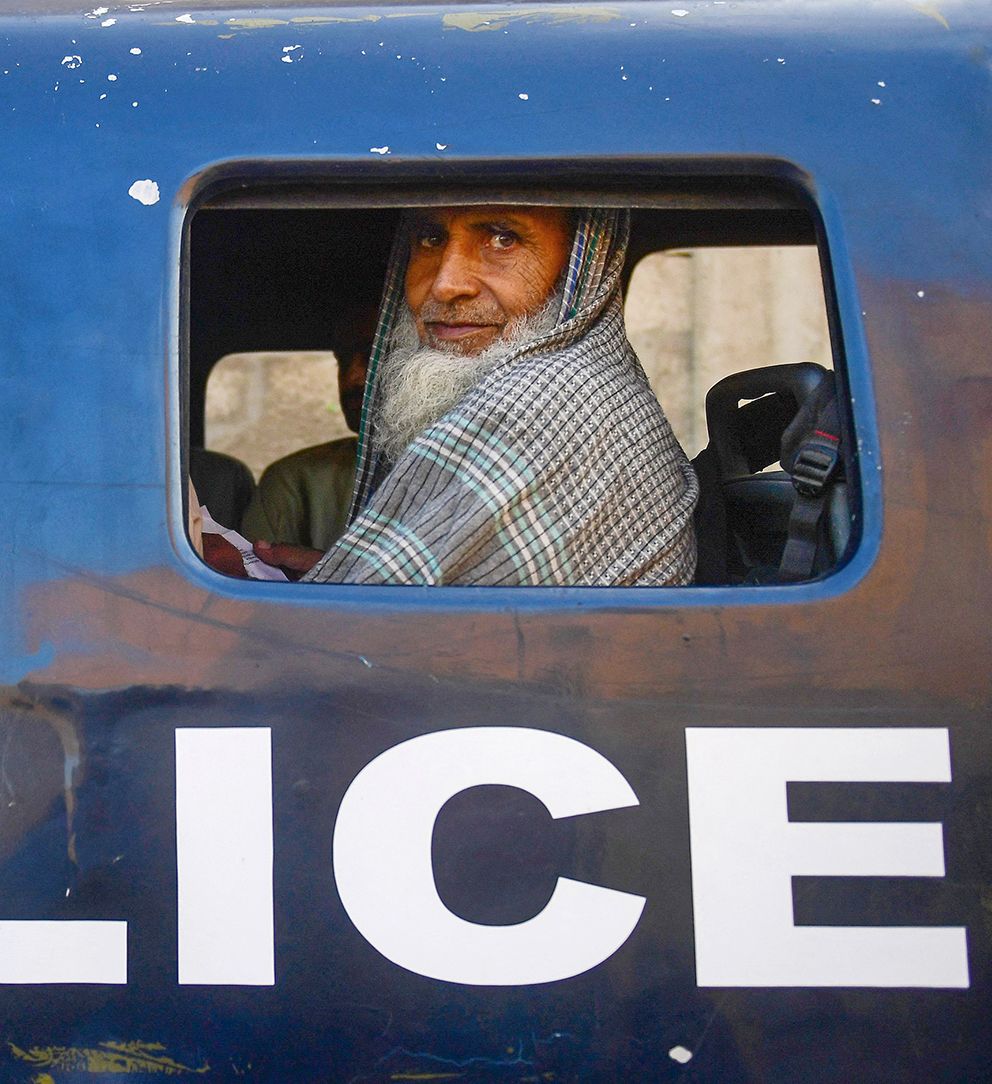By Andrew North
He was eating dinner with his family when the knocking began. Like many Afghans, Omid, a translator, had fled from Afghanistan in 2021 after the Taliban took over. He and his family snuck across the border to Pakistan, where they tried to keep a low profile as they waited for their applications for asylum in the West to be processed.
Omid, his wife Nafisa and their three children were sitting cross-legged on the floor tucking into a steaming dish of rice and beans that Nafisa had prepared. The children were reaching out for strips of flatbread when they heard a series of sharp thumps on the metal gate outside their home. The noise made everyone freeze. “Open up,” a voice shouted. “It’s the police.”
“Again?” whispered Omid to Nafisa, as he got up to answer the door. It was the third time that officers had come to their house in as many weeks. They had already taken copies of all their documents. Omid was shocked to see a squad of eight officers gathered outside. “We have come to search the house,” said their commander, wearing the signature dark shirt and beret of the Pakistani police.
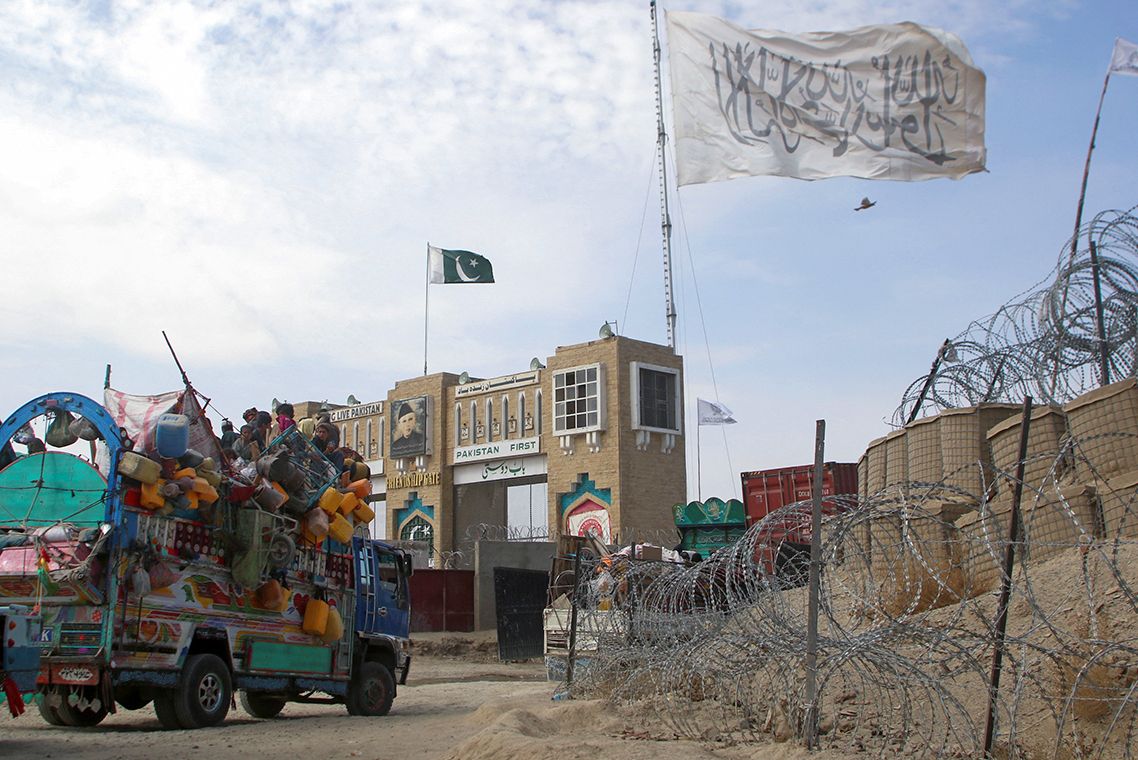
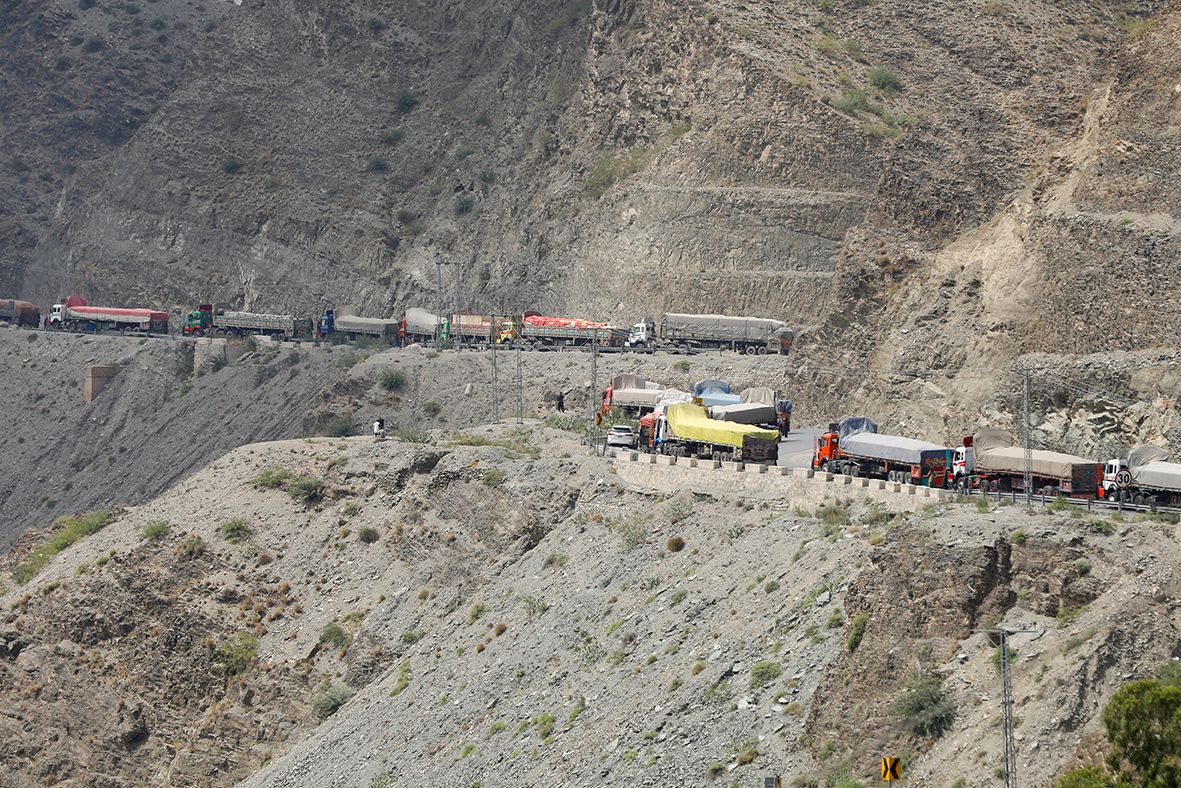
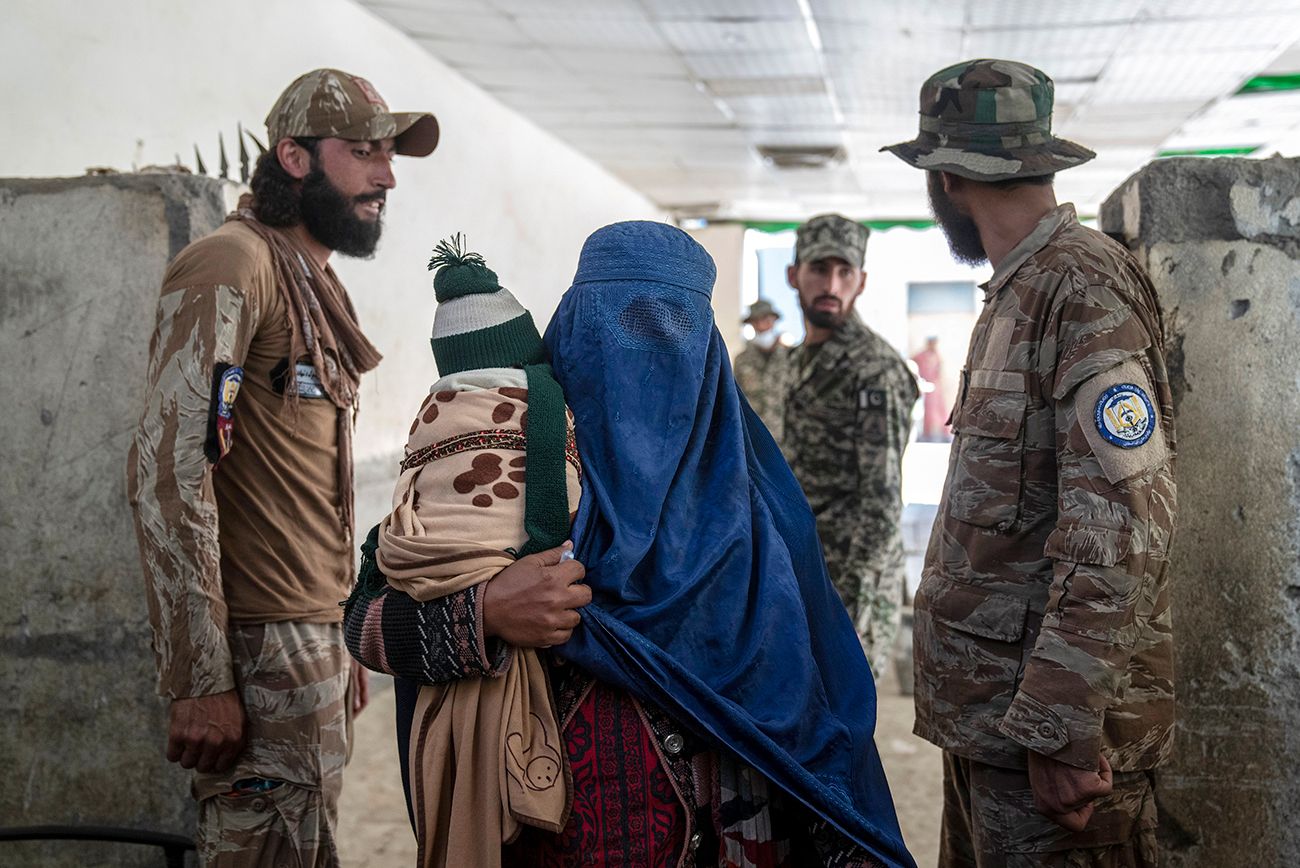
The lights on the police vehicles had attracted an audience of nearby residents. “Namak haram!” Omid heard someone shout, a phrase that translates roughly as “traitors”. Until recently it was a phrase that Afghans in Pakistan didn’t hear very often; now it’s hurled at them with alarming frequency.
About 4m Afghan refugees were living in Pakistan at the start of 2023, the result of decades of war and repression on the other side of the border. Nearly half of them didn’t have formal permission to live in Pakistan, but most of the time the police weren’t terribly strict about paperwork.
Then on October 3rd the Pakistani government announced that it was going to start arresting irregular migrants and removing them from the country. Although the official statement didn’t mention Afghans by name, everyone knew it referred to them. Police began seeking them out, and public expressions of hostility surged.
The most vulnerable refugees are those like Omid, who fled after the Taliban returned to power in August 2021. Many of the 600,000 Afghans who came to Pakistan then had already applied for asylum in other countries – including Britain and America – and intended to stay in Pakistan only temporarily. Because these claims took so long to process, they were forced to overstay their short-term visas.
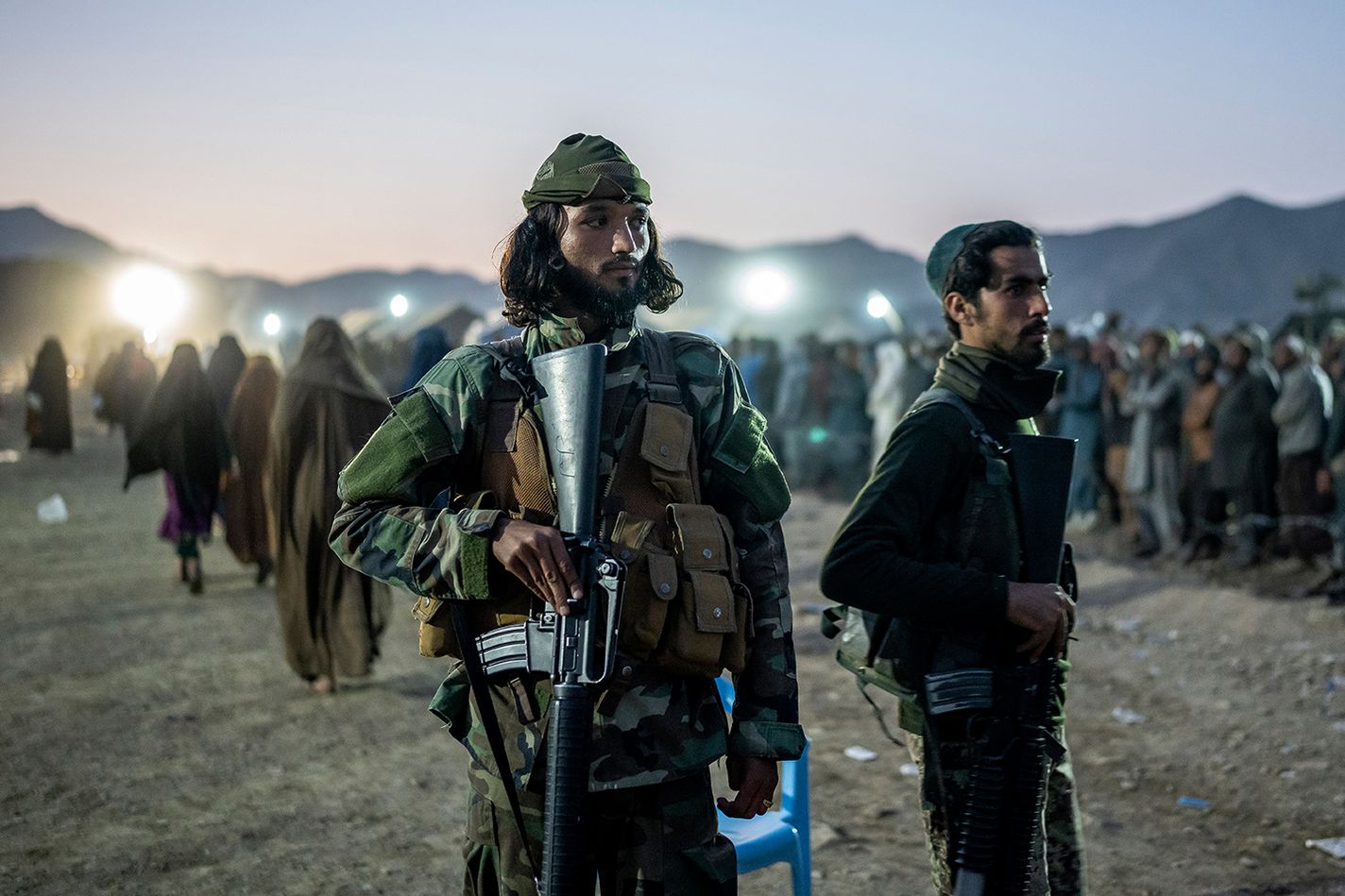
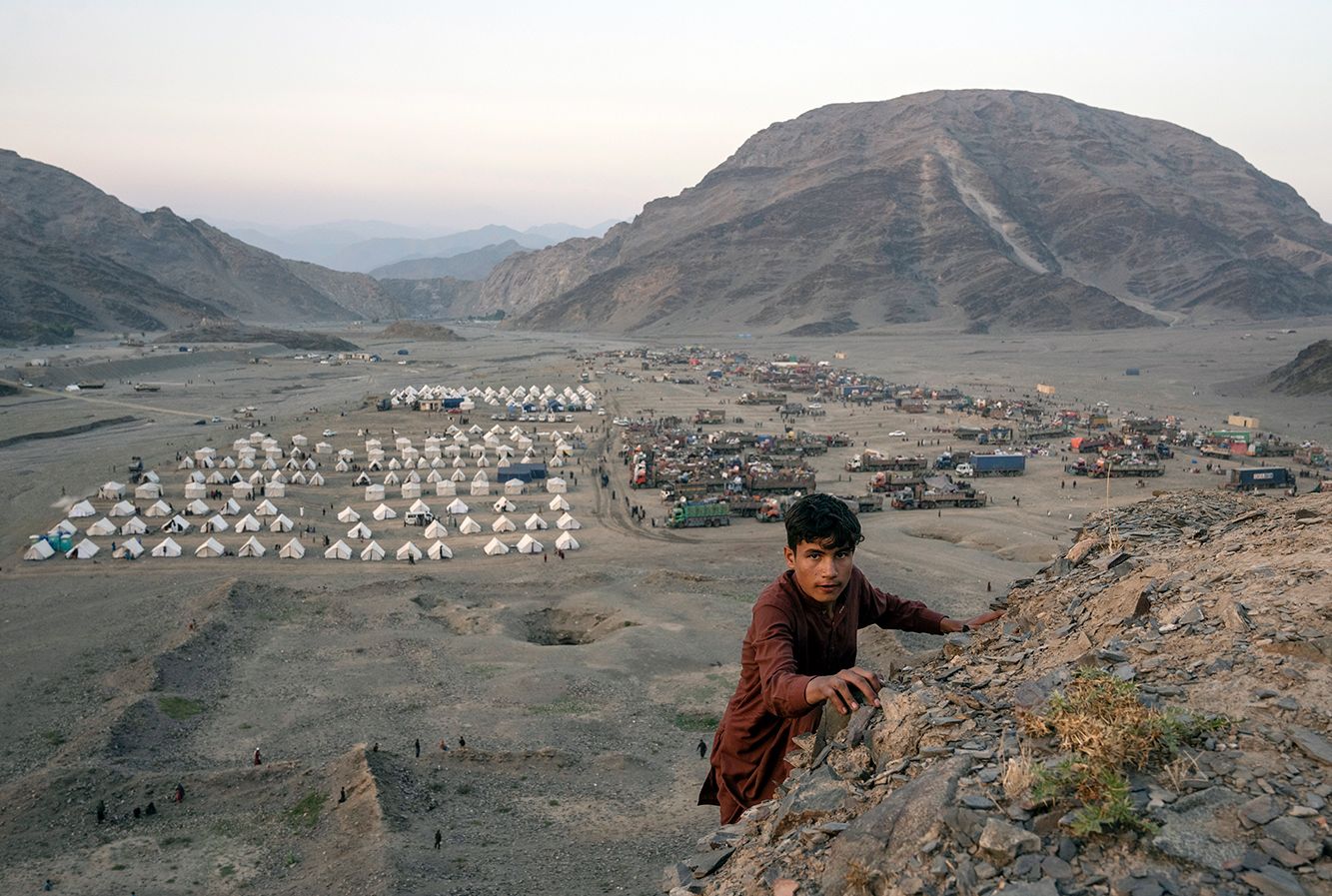
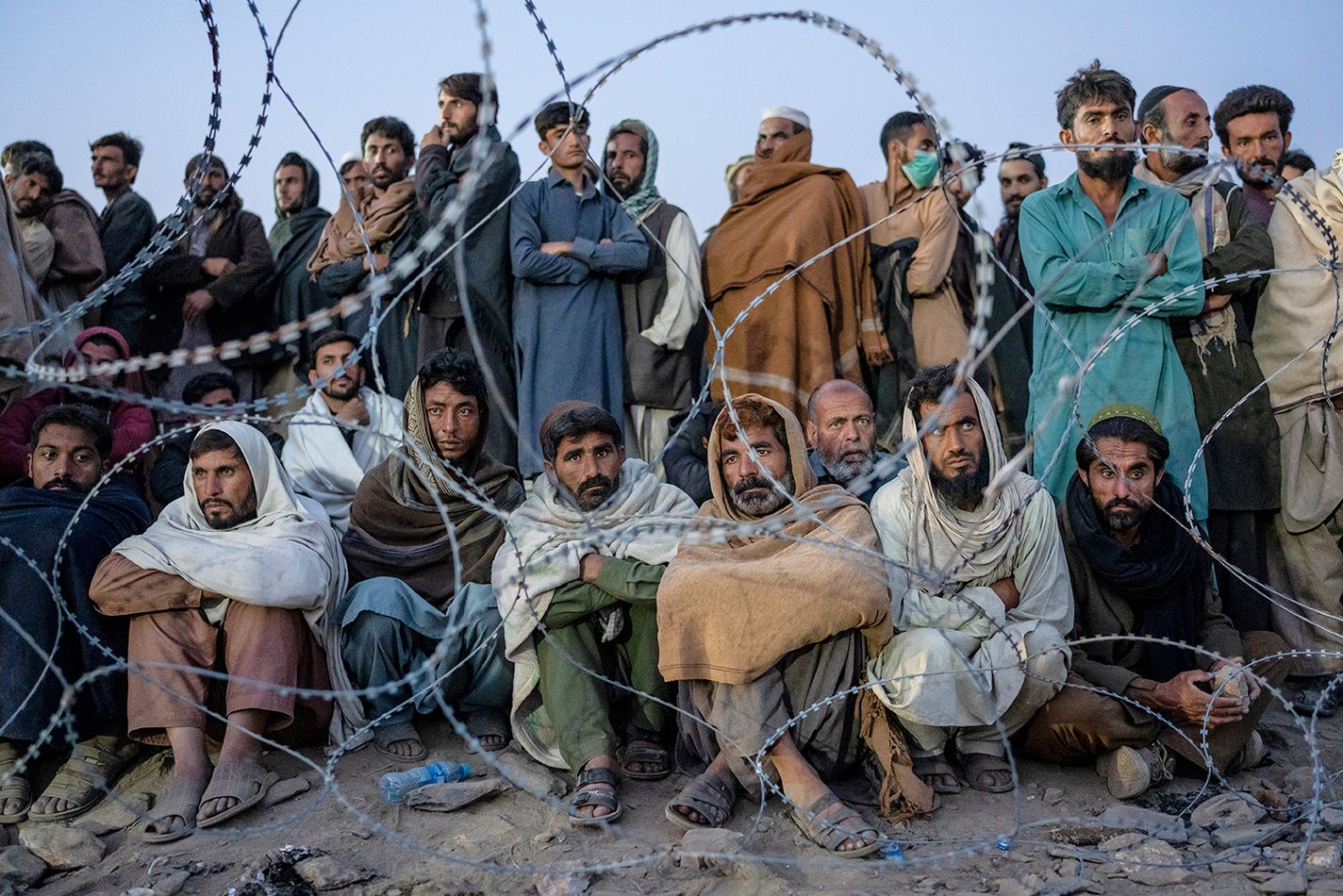
The thought of going back to Afghanistan terrifies Omid. He knew as soon as they returned to power that the Taliban might target him for working with foreigners, and tried to get on a Western evacuation flight during the chaotic airlift in August 2021. He couldn’t make it through the crush around Kabul airport.
The Islamists put out reassuring statements offering amnesty to anyone who had worked with America or the previous American-backed government. But as the months went on, Omid heard numerous reports of people associated with foreigners being threatened, abducted and murdered. One day towards the end of 2021, a Taliban official got in touch and told Omid he knew about his past. “He called me a marked man,” he said.
Over the following days Omid received a succession of calls from numbers he didn’t recognise. “I stopped picking up after I heard a voice say, ‘We are watching you’,” he said. “I knew I had to leave as soon as I could.”
Soon after the announcement in October, Afghans across Pakistan started to share news and rumours on WhatsApp about people being arrested. Some heard of whole families being taken away, including women and children.
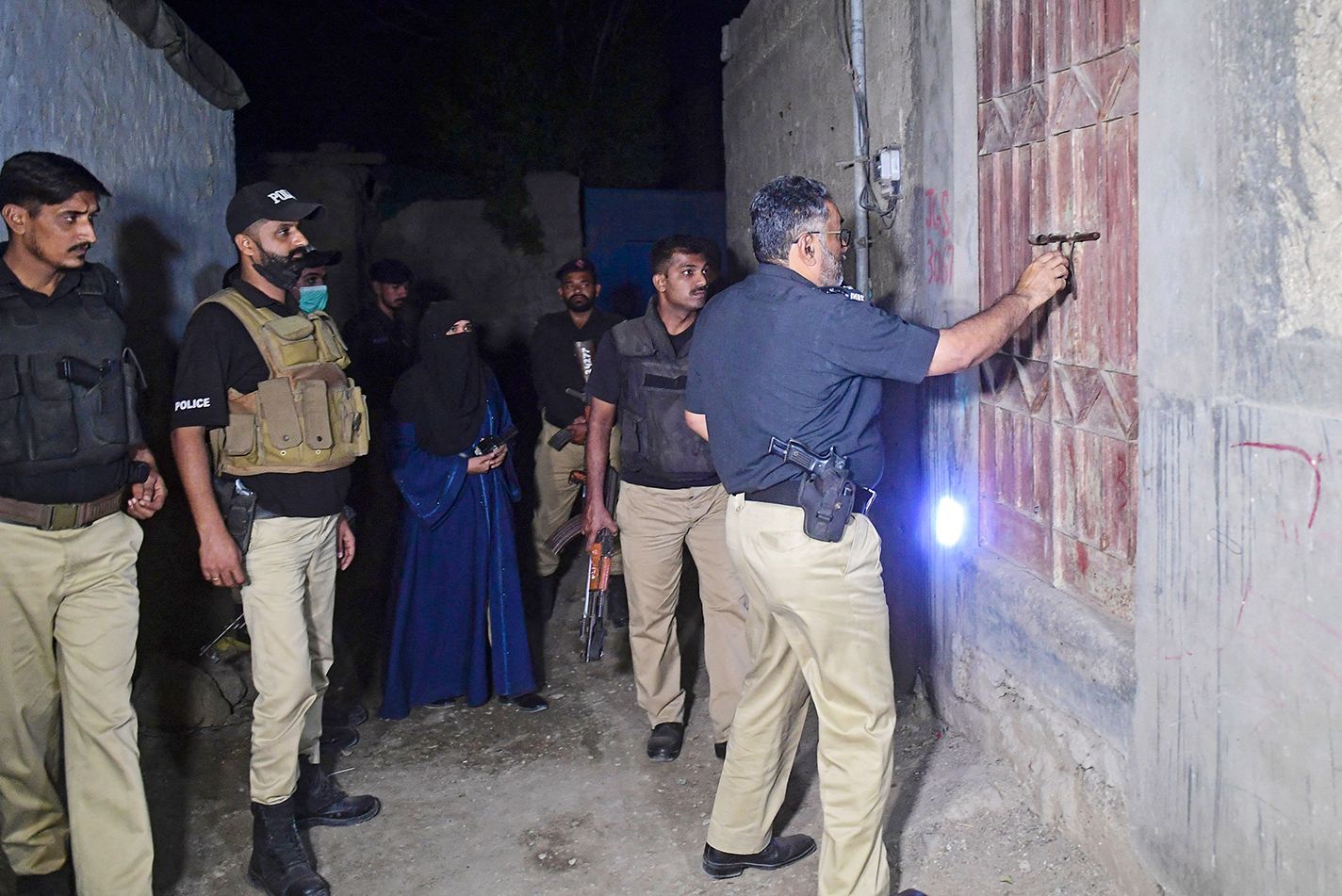
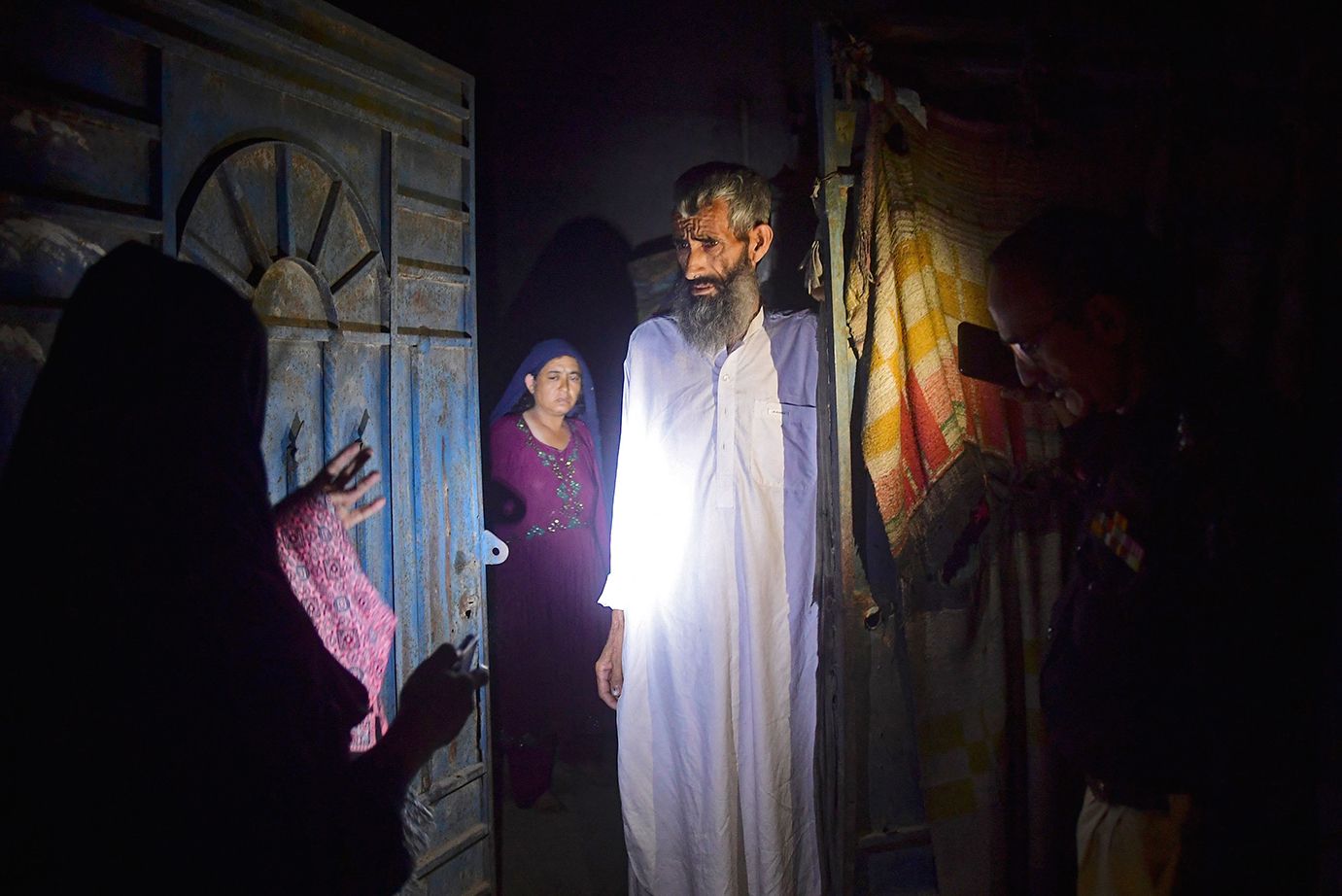
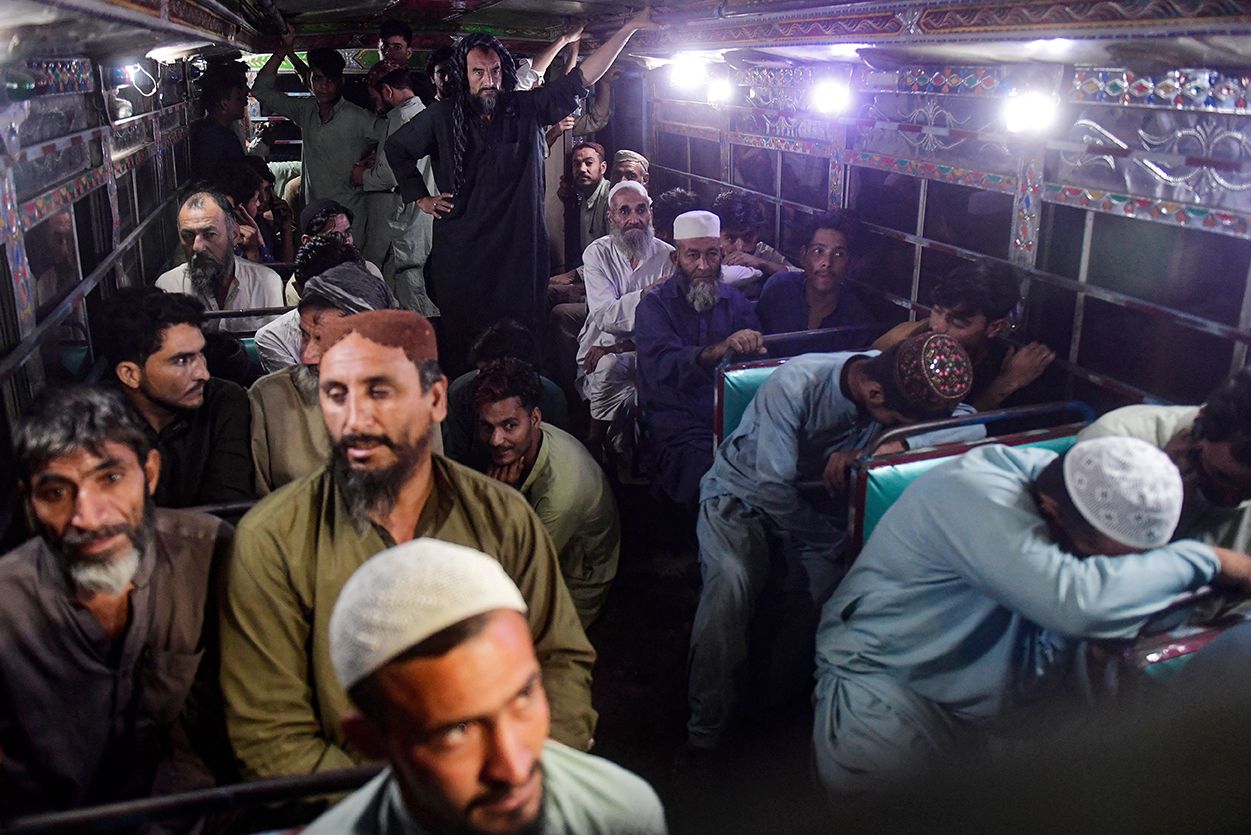
Omid’s landlord came to their home to explain that he risked being punished for letting his property to Afghans. “Leave now,” he said, “or I will hand you over to the police.” After showing the landlord documents that proved their asylum cases were still pending, Omid persuaded him to give the family a reprieve. But the landlord was still uneasy. “Please go as soon as you can,” he said.
Omid is trying to speed up his asylum application, but there’s not much he can do about it. Western governments are overwhelmed by the backlog of cases, and the process moves very slowly. In December, following a visit from America’s envoy to Afghanistan, Pakistan’s government extended the deportation deadline to February 2024.
The police seem determined to carry on rooting out Afghans, however. Since October at least 400,000 Afghans have returned to Afghanistan from Pakistan. Some of these people had been arrested and deported, but many are so scared of ending up in a Pakistani jail that they cross the border voluntarily.
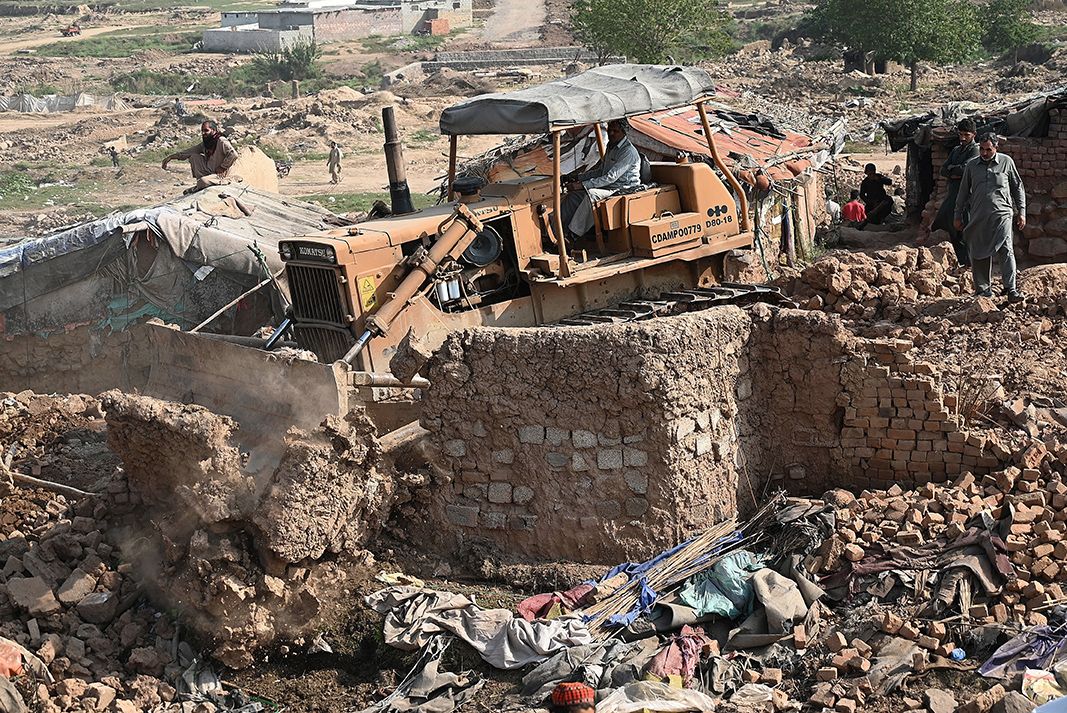
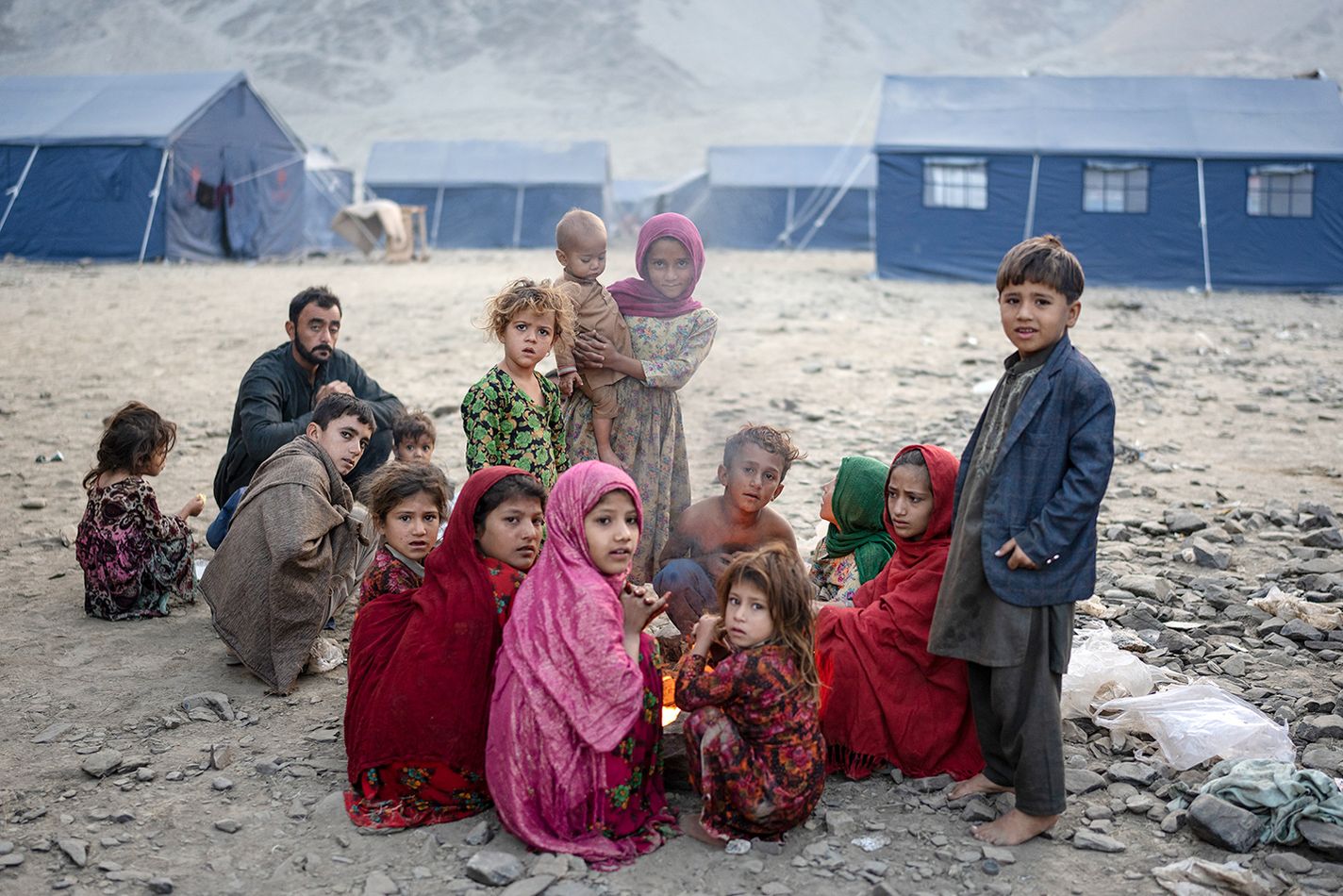
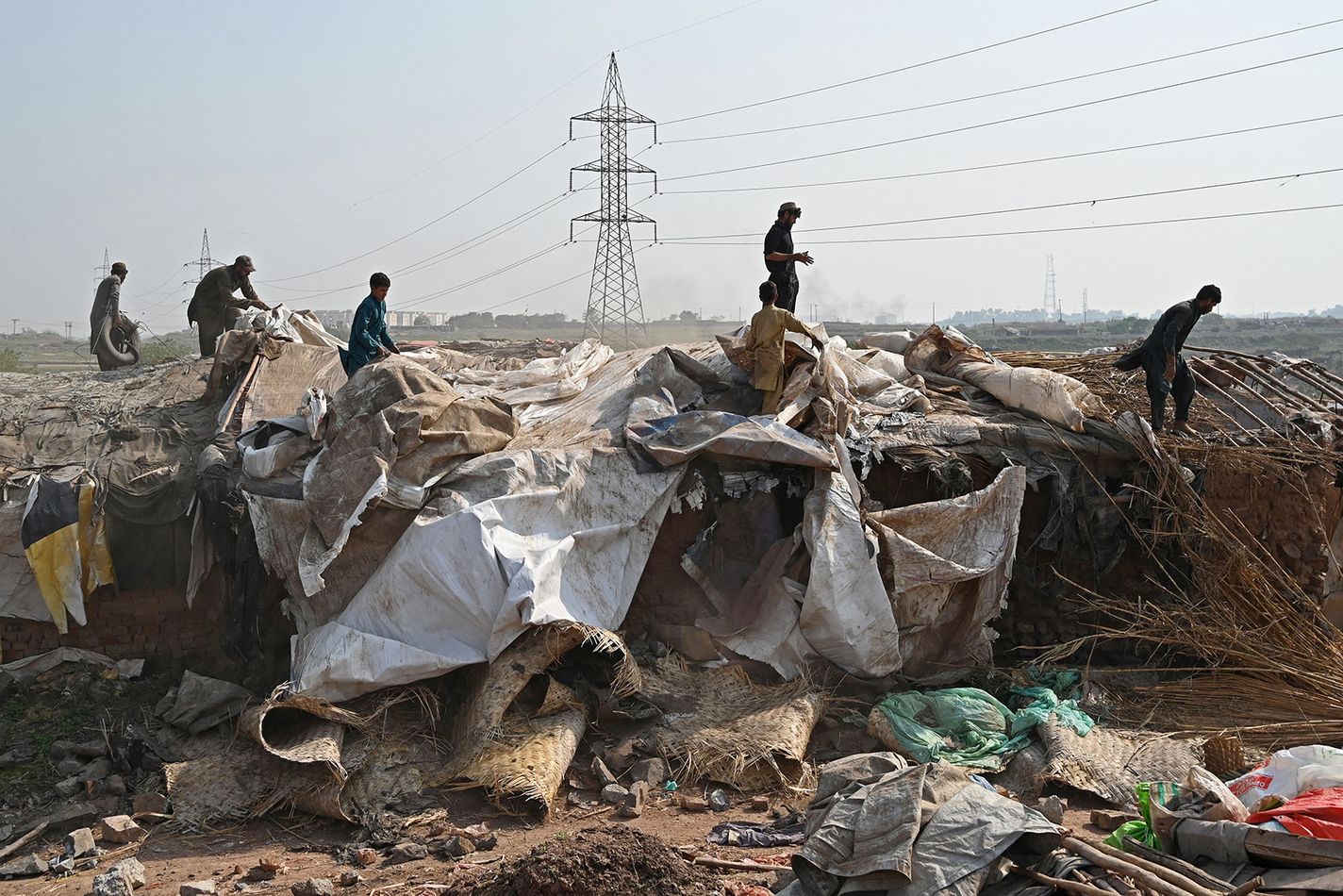
Omid’s family have stopped leaving the house for all but the most essential missions – they no longer even go to the mosque to pray. The fate that could await them if they are deported to Afghanistan is too awful to contemplate. “I don’t even want to think what will happen to us if we’re sent back,” Omid said.
No one is quite sure why the Pakistani government decided to turn against Afghan refugees after tolerating them for so many years. Some suspect that politicians are trying to distract the public from Pakistan’s economic crisis. (Pakistani officials say they are simply enforcing existing immigration codes.)
It could also be a way to hit back at Afghanistan’s Taliban rulers, with whom the Pakistani government appears to have fallen out. When the Taliban retook power, it should have been a moment of triumph for Pakistan’s government, which had covertly supported the group’s insurgency against the American-backed government in Kabul.
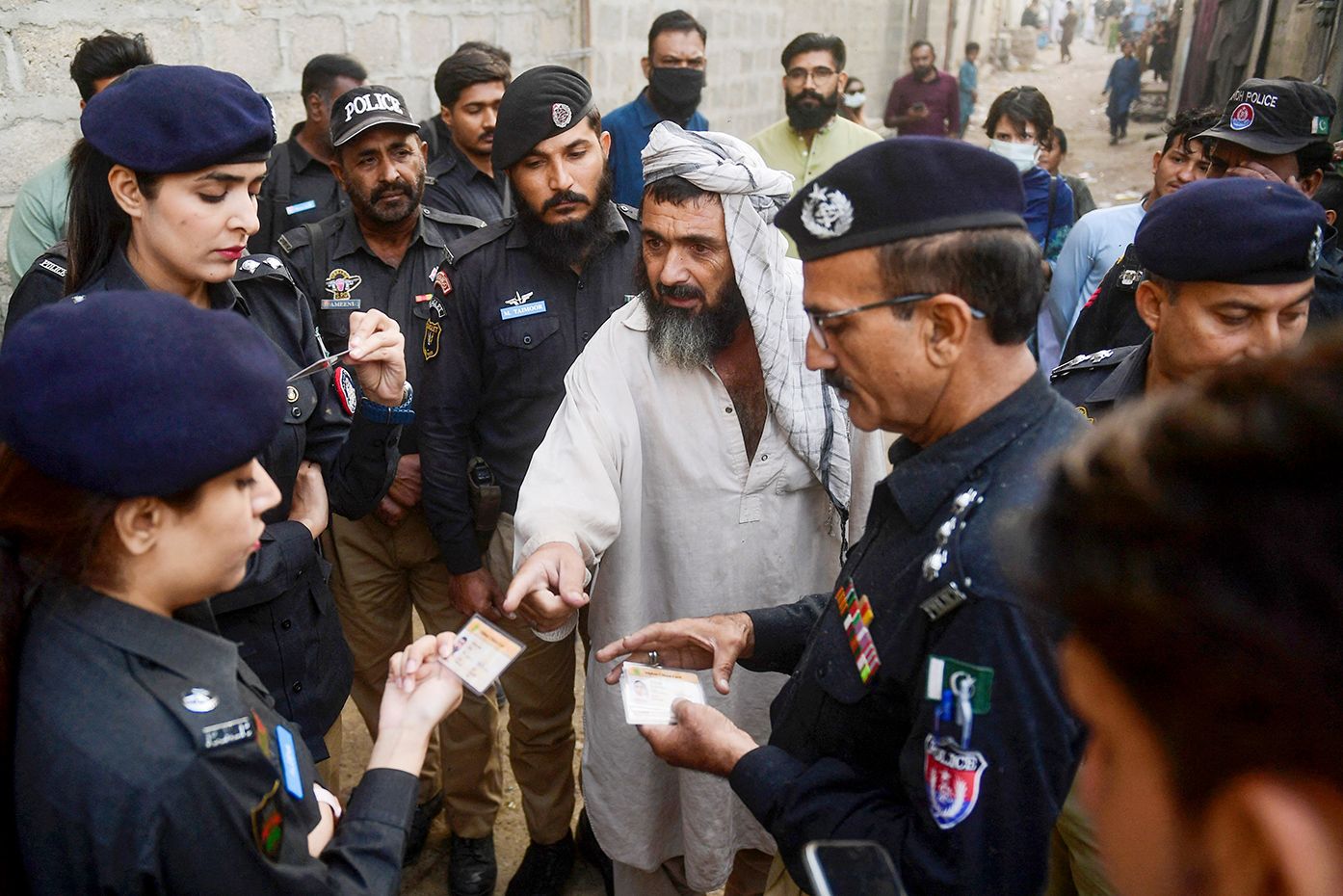
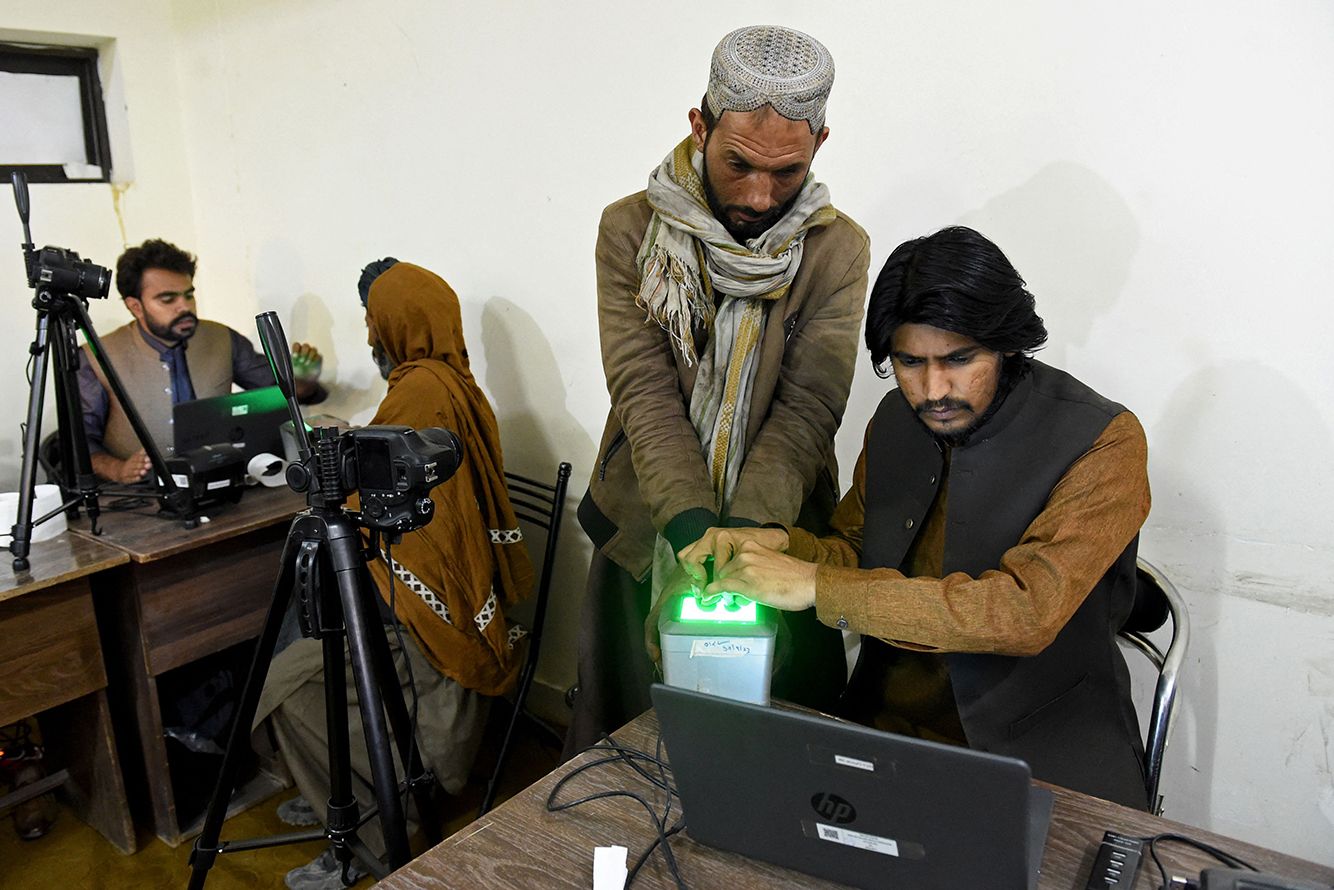
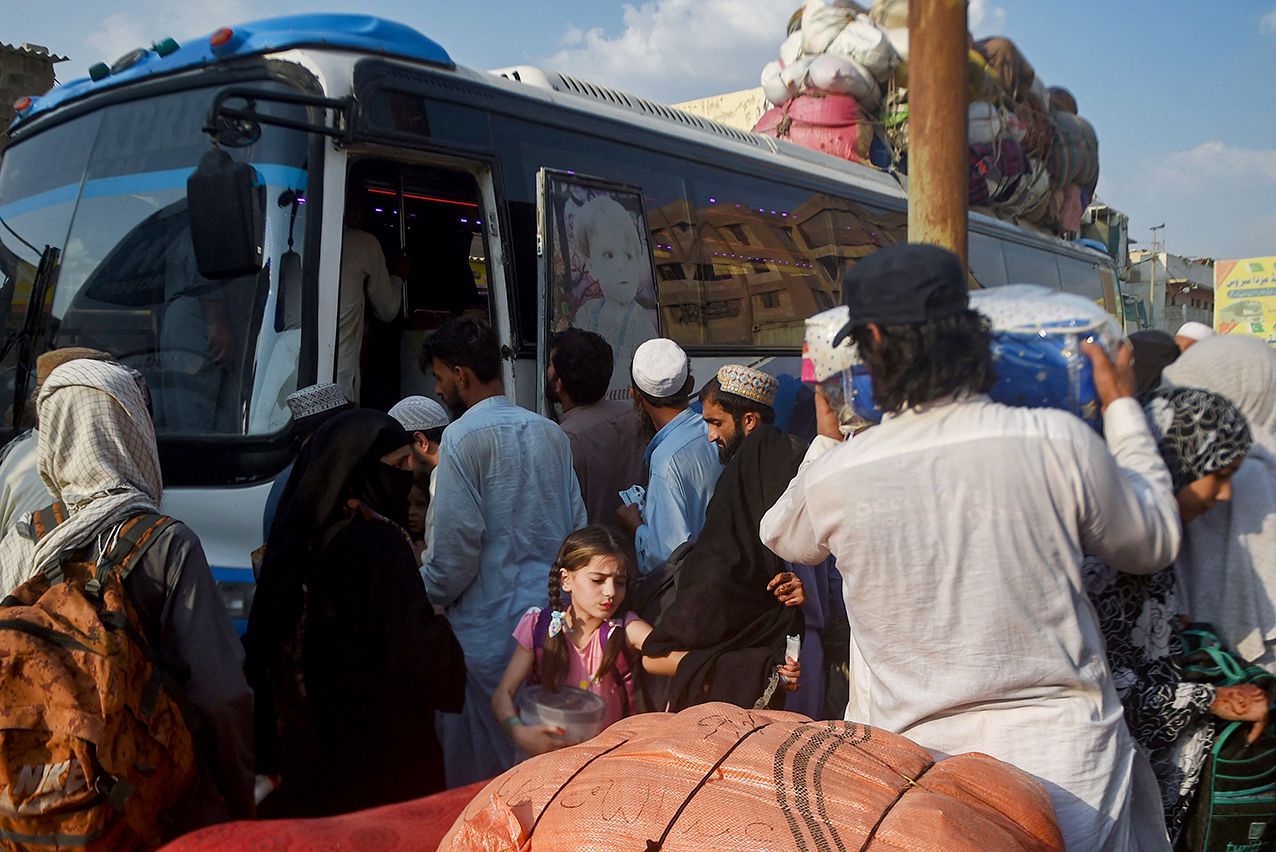
But any hopes for a compliant ally across the border quickly evaporated. In the past two years there has been a series of terror attacks in Pakistan, many of them suicide-bombings, which have killed more than 2,000 people. They have been mounted by a group affiliated with the Taliban called the Tehreek-e Taliban Pakistan, which the Pakistani government says has been given sanctuary in Afghanistan.
The tension between the two countries is plain for all to see – even on the cricket pitch. When Afghanistan beat Pakistan in the Cricket World Cup at the end of October, the man of the match dedicated his award to all Afghans who had been deported from Pakistan. Anwaar-ul-Haq Kakar, Pakistan’s prime minister, snapped back that if his team had won, he would have dedicated the award to all the police officers “repatriating illegal refugees”.
Omid tried to explain to the policeman that they had already submitted all their details to his colleagues. The commander pushed past, with his colleagues following behind. The family’s dinner was getting cold. “Who else is living here?” the commander demanded, before asking for everyone’s papers.
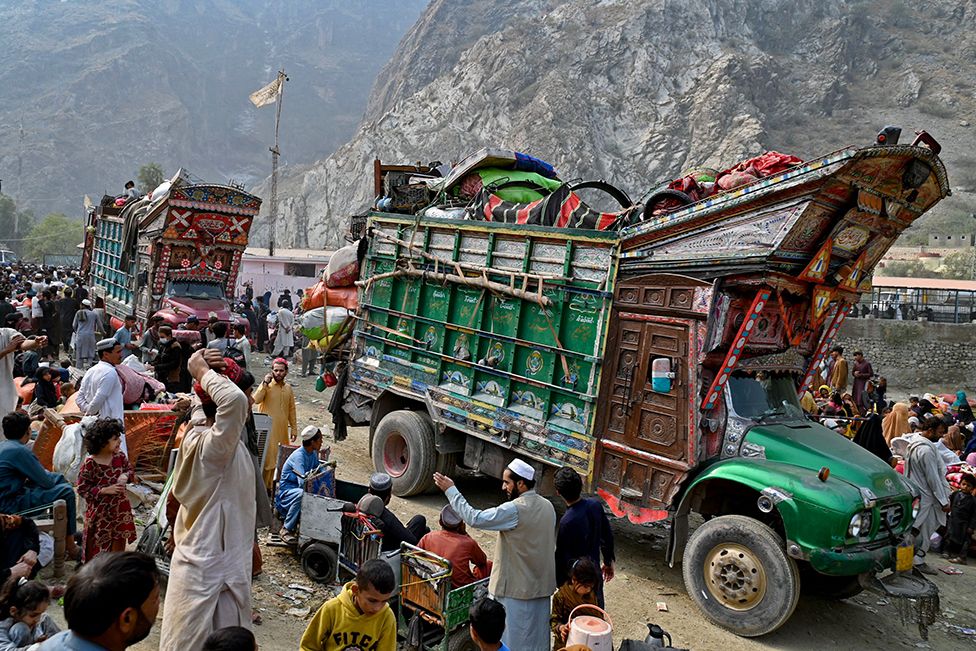
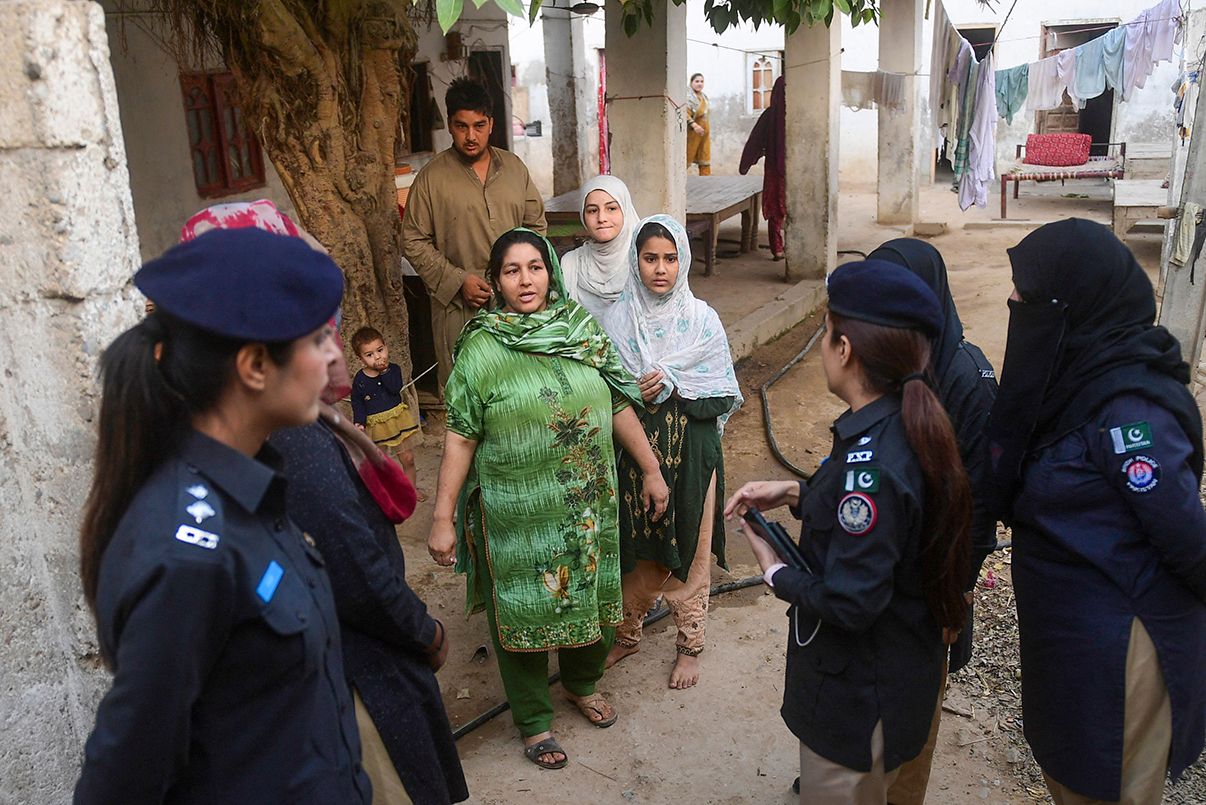
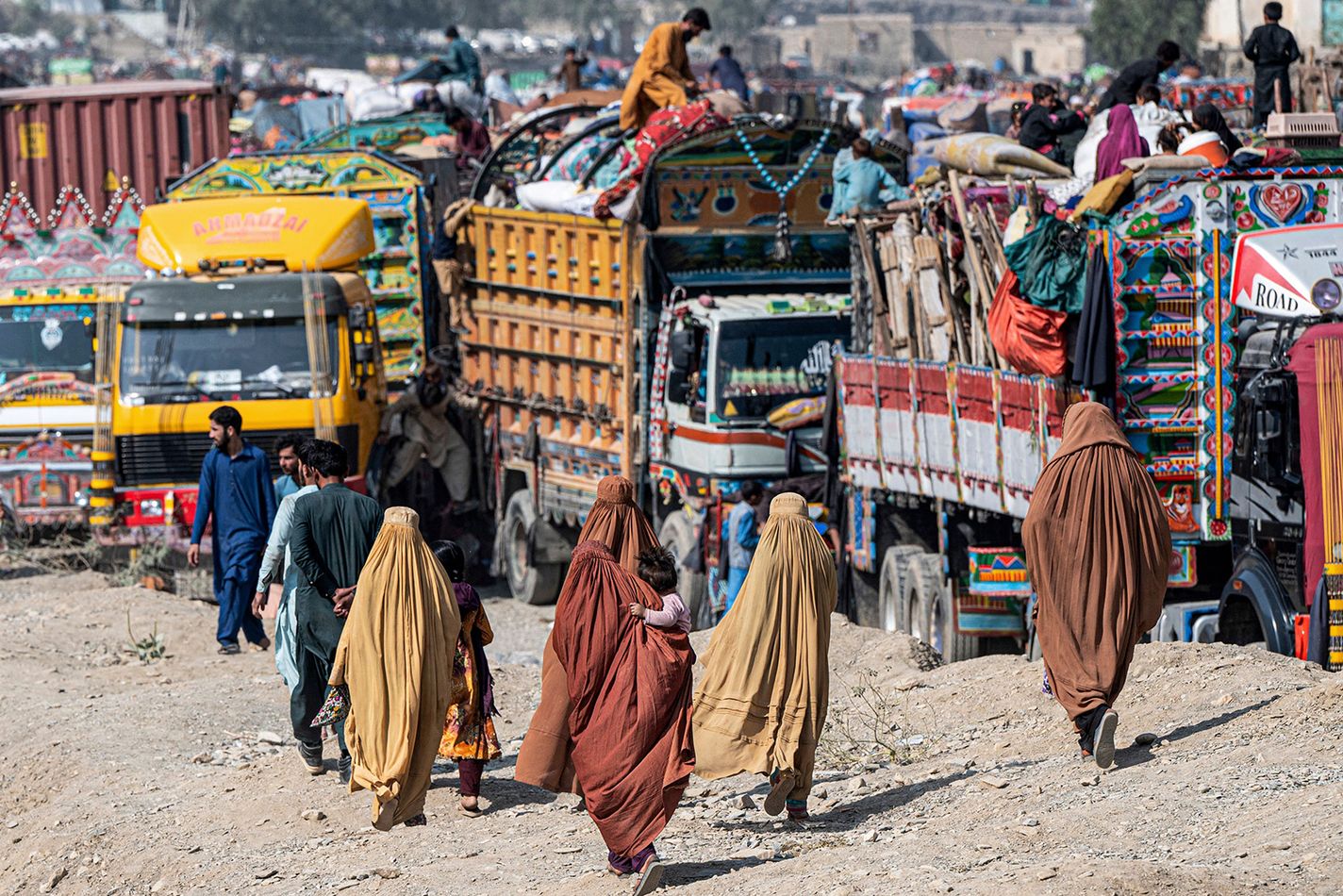
Omid’s wife was ordered into another room to be searched and questioned by the female officers. The commander told Omid to follow him as he scoured the rest of the house. “He kept asking me the same questions,” said Omid. “Who we were. Where we were from. He knew all the answers. It was just pressure.”
The only thing that has saved him from being arrested so far is the documentation he has showing his family’s asylum cases are still under active consideration. But he may just have got lucky. Afghans say that some others in the same situation have been sent back regardless.
Finally, the commander called a halt to his search and handed back Omid’s documents. “Eat,” he said, gesturing to their meal. But the message was clear. The authorities were not going to leave him alone. As the officer left, he called the family namak haram (traitors). “For God’s sake,” he said, “just go.” ■
(Names and some details have been changed to protect identities)
Andrew North is writing a book about Afghanistan. He was previously based in Kabul with the BBC
PHOTOS AFP/Getty, Reuters, AP
More from 1843 magazine

1843 magazine | Nagorno-Karabakh, the republic that disappeared overnight
It had been clinging on to its self-proclaimed status in the face of Azerbaijan’s aggression. Then, over a week, the entire population fled

1843 magazine | Cornel West’s quixotic presidential bid holds dangers for Joe Biden
He’s not going to win, but his long record of pro-Palestinian activism might attract left-leaning Dems – if he can get on the ballot

1843 magazine | When the New York Times lost its way
America’s media should do more to equip readers to think for themselves
